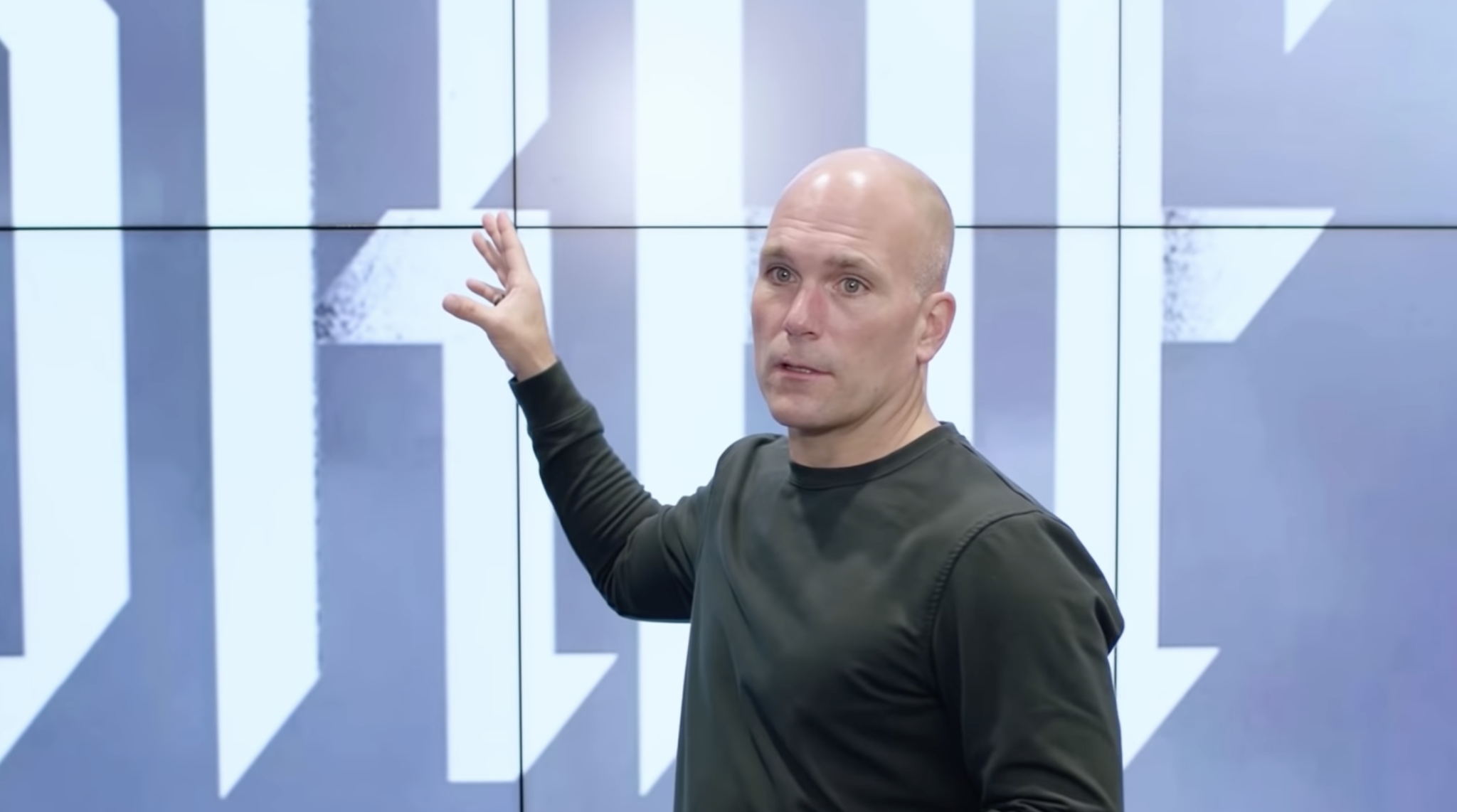So, Brian Roberts really DID use steroids. And, alas, Larry Bigbie told the truth.
As Paul Harvey might say, “Now we know the rest of the story…”
Or do we?
The lesson here about steroids and baseball really doesn’t have much to do with stats or pride or sanctity of the game. The lesson here is about a good man with a good image like Brian Roberts.
In the spring of 2003, Brian Roberts was a fringe major league player. He had 401 at-bats in the big leagues and was coming off a year that he hit .227.
He could’ve become the next Billy Smith, a decent platoon player for a couple of years and made a few nickels. Or he could’ve been a Bill Ripken, a 10-year sometimes starter who had a nice career. Or he could’ve been a Jeff Reboulet, who lasted forever in a number of roles. Or he might’ve been a Roberto Alomar, a five-tool sensation who could do it all.
Or, he might’ve been the next Jesse Garcia, who never made it at all.
But, with competition with Jerry Hairston running high for the job at second base in Baltimore, maybe Brian Roberts thought when he broke out the needle that he’d NEVER have a chance to really establish himself in the major leagues if he didn’t get the “edge” that so many players had.
This is a recurring theme, especially among veteran players: “The kids were on the juice and they were going to take my job. I had no choice!”
This will be a very familiar story you’ll hear over and over again as to why certain “clean image” players like Roberts got involved with the likes of David Segui and Kirk Radomski. There will be more names and more people with Roberts’ story:
1. I did it because I was afraid of losing my job.
2. I did it because I wanted to GET a job and make millions of dollars.
3. I did it because everyone else was doing it.
4. I’m a good, God-fearing, decent human being and I really felt at the time that I didn’t have any other choice if I wanted to play Major League Baseball.
5. I only did it once. (This is my personal favorite!)
Here’s the most important fact that is not lost on me: THEY ALL LIED ABOUT IT FOR YEARS. They banded together, covered it up, made fools of the media who asked honest questions and they all lived in the shadows of their own doubts, beliefs, skills and ego.
And many of them became wealthy beyond our wildest imaginations on money that we fronted as fans, believing every lie they told.
So, today, do we believe Brian Roberts, who we really WANT to believe? The All-American boy, guy-next-door, scrappy little dude we wanna root for and cheer for and collect his baseball card and get his autograph?
Or is he just the first (and smartest) to get on the front end of the accusations and create his own story and rationale.
Personally, I don’t know what to believe but I do know that I like Brian Roberts a lot. (Of course, I like David Segui a lot as well on a personal level, but there’s NO DOUBT how he got his muscles, and to some degree, the $42 million he made in MLB AFTER he got to the big leagues without the use of steroids in the early 1990s!)
And I think it took immense courage and pride for Roberts to release a statement of any kind, probably against the wishes of his legal team and Peter Angelos’ as well.
I particularly LOVE that he’s the first guy to really issue a statement speaking his mind. I like that he understood that he couldn’t “hide,” like so many of the players who have scurried like cockroaches in the kitchen at midnight since the Mitchell Report.
"I only used steroids once," Roberts says. Do we believe him? Personally, I don’t, but at least he said SOMETHING instead of avoiding the topic like so many of his baseball brethren have and will in the future.
Of course, at this point, I don’t need Brady Anderson to issue a statement about steroids for me to think what I think about whether he used them or not.
All of the players whose names are in the report will be found and questioned, if not by the media, then by the fans or the public at large. So, why not address the issues head on. Any one of the above excuses, reasons, rationale will work.
The only question then becomes a simple one of honor and trust and beliefs and values, the very ones that so many baseball players, the MLBPA and the owners failed on miserably over the last 20 years.
Baseball players and the machine that runs baseball have ALWAYS had a hard time with honesty. I know this, because it’s the world I’ve lived in.
It’s my No. 1 problem with the current Orioles and the Peter Angelos regime. It’s been my experience that if someone from the Orioles tells me anything, that time has shown that I’m a fool to believe them. (Go ask Peter Schmuck and pull out his clips over the past 10 years and see how many times they’ve made him look foolish for believing them!)
And now, after all of the years of lying, and hiding in the shadows on this steroid issue, the public is at a loss as to whether to believe Brian Roberts and his kind, or not.
It’s guilt by association.
If Roberts were a truly honest man, he would’ve admitted this a few years ago, not now after he was outed by Larry Bigbie and the Mitchell machine.
But even the "good guys" like Brian Roberts — victim or villain? — now have to do damage control.
The trust is gone. The dignity is gone. America’s Pastime is no more.
Where have you gone Joe DiMaggio, indeed.

































